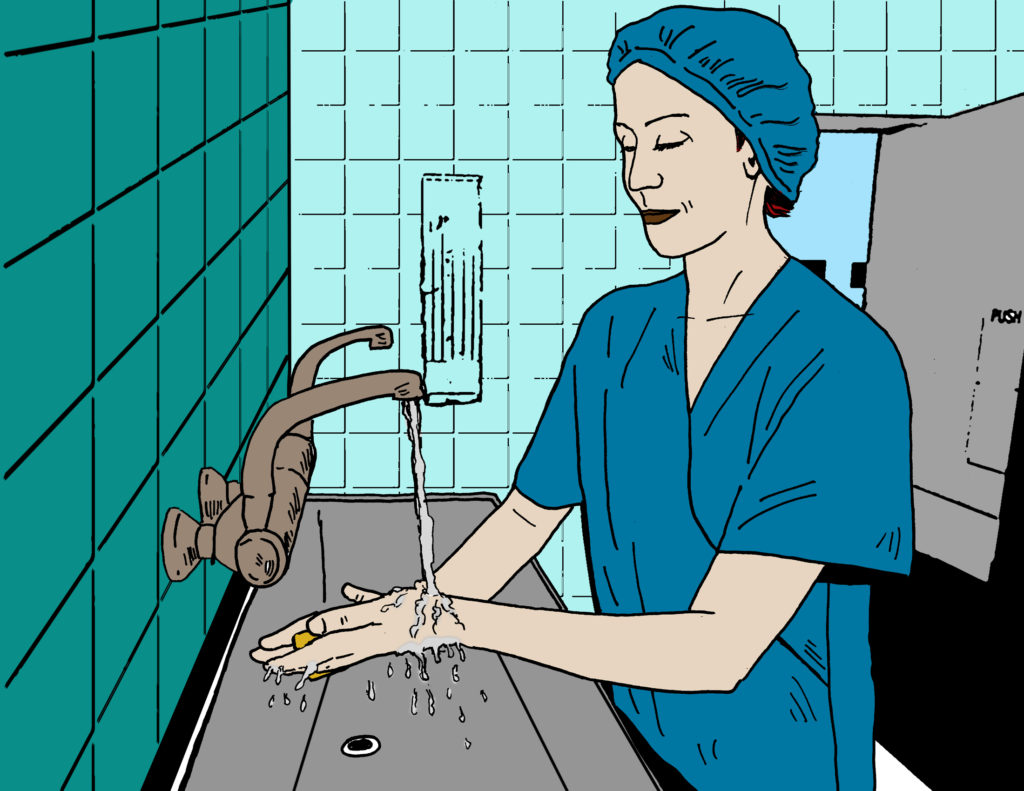
The sudden outbreak of the SARS-CoV-2 virus (known simply as the “Coronavirus”) has created the kind of pandemonium most have never seen in their lifetimes – widespread panic buying, suspension of work and school, and the locking down of entire cities due to the rapid spread of this potentially fatal disease. As news spreads about thousands being infected all across the world, it is very easy to get caught up in the craziness of what’s going on, but just as in any emergency situation, panic is humanity’s worst enemy (most especially true for those working in the medical industry). Based on what experts have observed these past few weeks, there is a recommended course of action that can greatly decrease the chances of transmission from one person to another, but it requires patience, a clear head, and a calm demeanor. Following are five key guidelines intended to help physicians keep their practice in check while effectively managing this Coronavirus pandemic.
1. Ensure Your Staff Is Properly Trained – One cannot overestimate the importance of a well-trained staff that is ready to handle difficult medical situations such as this. By being informed of the correct way to handle Coronavirus positive patients, the chances of the virus spreading decreases significantly. This is increasingly important because proper handling means that both patients and front-line medical workers will have a better chance of not getting infected.
2. Designate & Equip Isolated Sections For Use As Triage – Hospitals, clinics, and other places that provide healthcare services are high risk areas for Coronavirus exposure since those places are where people tend to go when they suspect they are sick. The best way you can manage this situation is to set up isolated sections for use as a triage where persons of interest can be held for further testing and treatment or referral to other establishments. Once a triage area has been identified, make sure it has all the necessary equipment at hand to combat the spread of the disease – including the proper masks, gloves, protective wear, antibacterial soap, and hand sanitizing agents such as 70% solution isopropyl alcohol.
3. Screen All Patients & Personnel At All Points Of Entry – Once the triage is set up, the next step is to ensure that every single person that enters the area goes through proper screening at the door. People that show no symptoms may be cleared to enter, but those who do must be sent directly to the triage section for further assessment. This will help by keeping infected people, as well as the personnel dealing directly with the infected people, contained in one section away from everyone else.
4. Refer All Coronavirus Positive Patients To Treatment-Ready Hospitals – Priority must be assigned to shipping out those who are at the greatest risk of mortality to the best hospitals in the area, while those with better chances of survival can be encouraged to treat and self-quarantine at home. The good news is that roughly 98% of Coronavirus positive patients will make a full recovery – so if you aren’t a senior citizen, or someone battling with other health issues such as asthma, hypertension, diabetes, and the like, you will almost surely survive.
5. Encourage People To Stay Calm, Stay At Home, & Be Vigilant – If a person is found to be negative for the Coronavirus, it means you will be allowing them to head back home – but first they will have to expose themselves again to the outside world. Before letting them go, leave them with advice that will help them understand how to increase their own chances of survival. First and foremost, they must be encouraged to keep a clear head, despite all the craziness. Also, remind them to fact check all sources of news before sharing on social media, as false news may cause needless panic, confusion, and stress for all involved. Finally, and perhaps the most important piece of advice you can give, is simply for everyone to just stay at home. Practicing “social distancing” in order to further decrease the chances of viral spread is vital in the containment of any communicable disease. If they have no other choice but to head outside for whatever reason, remind them to wear protective gear such as proper face masks and gloves and constantly wash their hands with soap, water, and 70% solution isopropyl rubbing alcohol in order to help mitigate the threats of exposure.
Stay informed about the latest medical news and issues in the great State of California and remember – at TukkoMed, everything we do is for doctors just like you. Contact us today!
